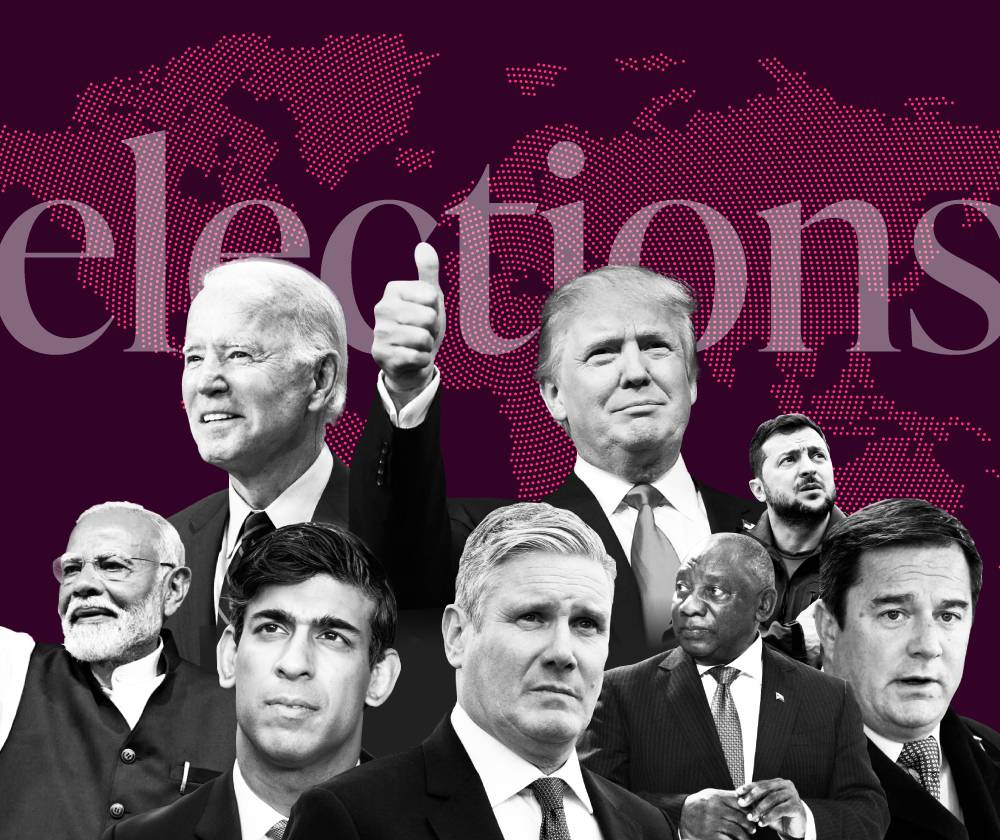While the focus may be very much on the UK and US elections later this year, we’ve seen three notable elections over the past couple of weeks – in India, Mexico and South Africa. Each saw a different result and a different market reaction.
In India, local markets initially rallied on indications that Prime Minister Modi would win a significant victory. We then saw a pull-back as it became clear that the victory was much smaller than expected. In Mexico, a better-than-expected result for Claudia Sheinbaum raised concerns that she would put through more left-leaning policies, and financial markets suffered. In South Africa, the ruling ANC party showed a weaker-than-expected result, losing votes to the newly formed MK party headed by former President Zuma. That leaves South Africa facing a coalition government, most likely with the pro-business Democratic Alliance (DA). That scenario has reassured investors, but it remains a fragile balance given divisions within the ANC about whether to ally with the DA or look to form a coalition with other parties.
There are a few points to make. First, obviously, government policy can matter for markets – and that means we’re right to focus on who will actually be in government. Second, it’s usually difficult to forecast not just the outcome of an election, but also the market reaction to it. As one prominent US investor commented about the 2016 election, there were two “certainties”. First, that Hilary Clinton would win and, second, that markets would sell off in the event that Donald Trump won. Neither proved to be correct. So it’s a bit of a balancing act: we should probably be wary of positioning portfolios very aggressively to reflect a particular election outcome, but we need to acknowledge that policies will change.
Where does that leave us? There are some notable contrasts between the UK and the US elections. In the UK, it would be quite surprising if the Labour Party didn’t win a fairly significant majority. You can argue that Keir Starmer and his team have worked hard to be as inoffensive as possible and, if markets are to be believed, they’ve succeeded. Currency volatility has been low, so far, and sterling has strengthened. UK equities have also held up fairly well in recent weeks. We’d argue that the surprises here would be a) if Labour didn’t win a majority and b) if we saw market volatility in the event that they do.
The situation in the US seems a bit more uncertain. Polling data suggests it’s too close to call, but that Donald Trump has a pretty good chance of ending up back in the White House. Markets reacted well the last time Trump won, but it’s not clear how good a signal 2016 will be. Some of his recent pronouncements – for instance around Central Bank independence – might cause some worry. So far, we don’t see a lot of concern priced into US assets (maybe slightly higher volatility expected around the election). It’s tough to know what the “surprise” looks like in the US today – maybe that the Democrats win and that it’s accompanied by a pick-up in market volatility!
But in the end, we’d argue most of us should avoid trying to trade short term market moves around elections, and focus more on the long-term drivers of returns.
Richard Flax: Richard is the Chief Investment Officer at Moneyfarm. He joined the company in 2016. He is responsible for all aspects of portfolio management and portfolio construction. Prior to joining Moneyfarm, Richard worked in London as an equity analyst and portfolio manager at PIMCO and Goldman Sachs Asset Management, and as a fixed-income analyst at Fleming Asset Management. Richard began his career in finance in the mid-1990s in the global economics team at Morgan Stanley in New York. He has a BA from Cambridge University in History, an MA from Johns Hopkins University in International Relations and Economics, and an MBA from Columbia University Graduate School of Business. He is a CFA charterholder.
*As with all investing, financial instruments involve inherent risks, including loss of capital, market fluctuations and liquidity risk. Past performance is no guarantee of future results. It is important to consider your risk tolerance and investment objectives before proceeding.





